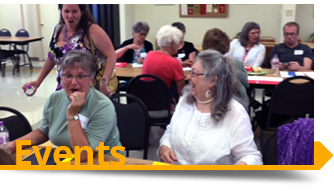Registration
Government and Civic Engagement: Discipleship in a Democracy
Event Location
Virtual (Zoom link in email response to your registration)- Date: Tuesday, May 26, 2020
- Time: 6:00pm – 7:30pm
0 FREE
53 seats
What is a faithful Lutheran response regarding civic engagement? Join us on Tuesday, May 26, 2020, 6:00 pm – 7:30 pm to learn and offer input on the draft of the ELCA’s new social message, “Government and Civic Engagement: Discipleship in a Democracy.”
Rev. Dr. Roger Willer, ELCA Director for Theological Ethics, from the ELCA Office of the Presiding Bishop will moderate the discussion.
The ELCA is gifted with a body of social teaching in the form of social statements and messages. Right now, we have a timely opportunity to expand our understanding of this teaching. Following action taken by the 2019 Churchwide Assembly, a Draft Social Message on “Government and Civic Engagement: Discipleship in a Democracy,” was developed. Throughout the month of May, you and your ministry are invited to read, discern and respond to this draft.
Social messages of the ELCA are topical documents adopted by the ELCA Church Council to focus attention and action on timely, pressing matters of social concern to the church and society. They are used to address pressing contemporary concerns in light of the prophetic and compassionate traditions of Scripture and do not establish new teaching or policy. Rather, they build upon previously adopted teaching and policy positions, especially from social statements.
ELCA social statements are teaching and policy documents that provide broad frameworks to assist us in thinking about and discussing social issues in the context of faith and life. They are meant to help communities and individuals with moral formation, discernment and thoughtful engagement with current social issues as we participate in God’s work in the world. Social statements also set policy for the ELCA and guide its advocacy and work as a publicly engaged church. They result from an extensive process of participation and deliberation and are adopted by a two-thirds vote of an ELCA churchwide assembly.
The Rev. Dr. Willer extends this invitation to learn more about this social message:
The idea of government was already very much in focus because this was an election year, and the pandemic has focused it more so. But what does the ELCA teach about the nature and function of government in relation to God’s purposes? What is a faithful Lutheran response regarding citizenship and civic engagement?
To help guide our church on these questions, the 2019 Churchwide Assembly asked for the preparation of a social message. At this time, the message is in draft form. Through May 27, you are invited to provide feedback on how to strengthen the message.
I invite you to click here to read “A Draft Social Message on Government and Civic Engagement: Discipleship in a Democracy.” To offer feedback, please fill out the survey. You may also choose to email comments to draftsocialmessage@elca.org. The comment period ends May 27. Please either offer feedback now or during or after our May 26th discussion.
___________________________________
Consider a few ideas for engaging this social teaching:
- Include the invitation to study and respond to the draft statement in your ministry’s electronic communications. Also Share the Invitation to our May 26th Virtual Conference.
2. Share the invitation from the ELCA to comment on your social media platforms.
3. Encourage your congregation’s advocacy or social ministry team to participate.
4. Ask members of your congregation active in faith formation or social ministry to host a Zoom forum for reflection and discussion.
5. Encourage all ELCA Lutherans to share their feedback through the survey link and/or by e-mailing their comments.
6. Encourage disciples in your congregation to
7. Now is a vital time for all of us to consider how we as Lutherans respond faithfully to our responsibilities as citizens and our call to civic engagement.



